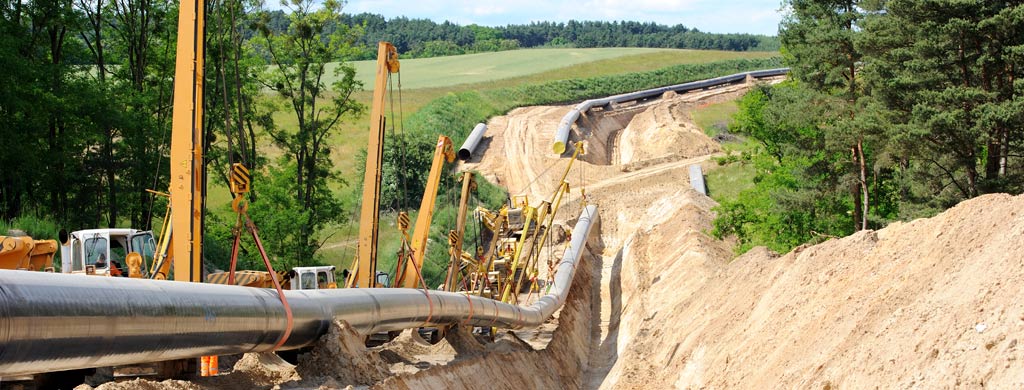Gas transport company starts up first oxygen scrubber for biogas
Heidenau. By starting up its oxygen scrubber in Fuchswinkel south of Hamburg, GASCADE is a pioneer in the industry. The Kassel-based pipeline operator's system, which is the first of its kind in Germany, is an important part of the GASCADE's biogas feed-in installation (BGEA) in Fuchswinkel, which has been in operation since April 2013.
There is a lot of interest in this installation, because systems for removing oxygen from biogas at the source are a novelty in Germany. Although primarily natural gas from Russia, the North Sea and the Netherlands flows through the German gas network, numerous varieties with different compositions, including biogas, have been added since the deregulation of the gas market in 2009. According to the Fraunhofer Institute for Physical Measurement Techniques IPM, combining these in one network urgently requires new and cost-effective solutions for the process and fuel value measurement techniques. On top of that, there are regulatory changes to consider: As of the spring of 2013, the DVGW regulations require an oxygen content of only 10 ppm (0.001 Mol-percent daily average) at network interconnection points like those that connect natural gas storage facilities that are important for supply security to the network. Since, however, current regulations permit injecting natural gas with a higher oxygen content into the pipeline network, many facilities need to be upgraded.
GASCADE is taking the lead: The removal system at the BGEA in Fuchswinkel, which costs roughly two million euros, treats the biogas in a catalyst that is coated with precious metals. With the help of liquid gas, the oxygen molecules turn into carbon dioxide and water. "With this method, the chemical reactions take place with little need for external energy," explains project manager Carsten Pospiech. To save energy, the oxygen removal system was integrated into the three-stage compression process of the BGEA so that the heat generated by the compression process can be used for the catalytic process. After the oxygen has been removed, the biogas must be cooled and dried before it flows back into the compression process.
The Fuchswinkel plant processes roughly 100 tons of biomass per day. It produces roughly 33 million kilowatt-hours annually (350 Nm³/h) – enough to supply up to 1,100 single-family homes. GASCADE is now using its newly acquired knowledge for a second project: In Nonnendorf (Brandenburg), a biogas injection installation that is also equipped with an oxygen scrubber will become operational in the fall of 2014. It has a capacity of 700 m³ per hour.
Over 7,700 biomass fermentation installations with a total output of 3,500 MW are currently in use in Germany. Besides being converted directly into heat and electricity, the energy is also fed into natural gas pipeline networks like that of GASCADE.

